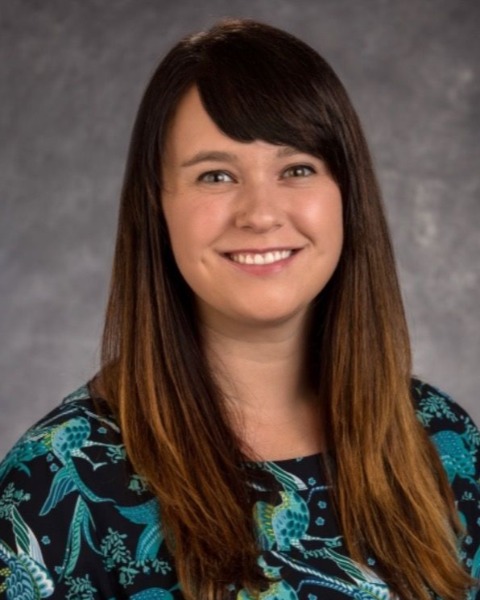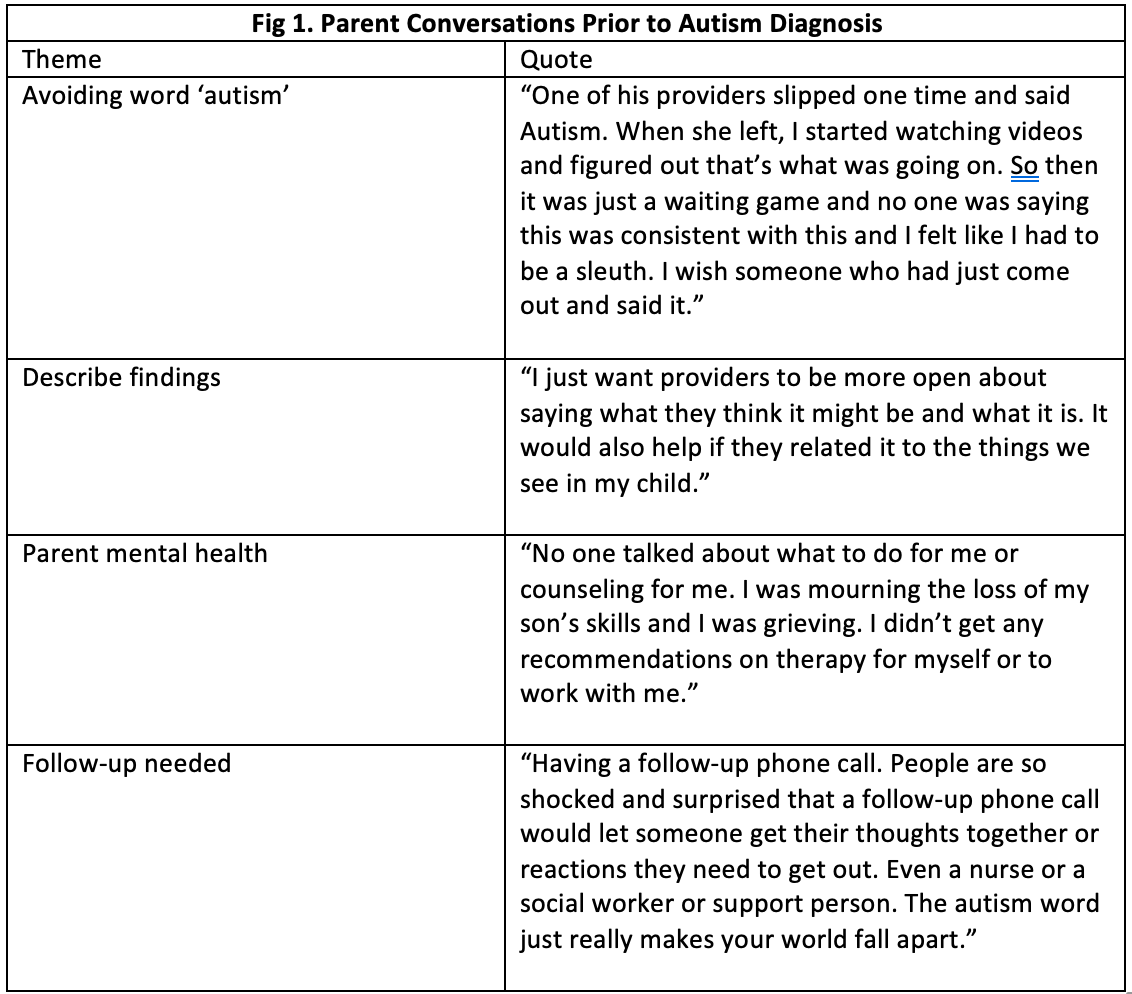General Pediatrics: Primary Care/Prevention
General Pediatrics 4
468 - Support Needs for Families and Primary Care Providers of Children with Suspected Developmental Delays
Publication Number: 468.217

Caroline Kirby, MD (she/her/hers)
Developmental and Behavioral Pediatrics Fellow
Golisano Children's Hospital at The University of Rochester Medical Center
Rochester, New York, United States
Presenting Author(s)
Background:
The number of children diagnosed with autism spectrum disorder and developmental delays (ASD/DD) is increasing. Children suspected to have these diagnoses may be referred to a Developmental and Behavioral Pediatrician (DBP) for evaluation, but often endure long waitlists due to a shortage of DBP providers. Support needs for families and providers during this waiting time has not been well-described.
Objective:
To describe support needs for families and their primary care providers when ASD/DD is suspected.
Design/Methods:
In this qualitative study, 10 parents of children with autism and 10 primary care providers (MDs and NPs) were recruited through convenience sampling. Families were recruited by a community-based parenting organization and contacted via email with follow-up by phone call for non-responders. Two families completed the email survey and 4 completed semi-qualitative phone interviews. Nine providers representing private and hospital-based practices in urban and suburban areas within Rochester, NY responded via email. Surveys were coded and major themes were identified. Nine of 10 providers and six of 10 families responded. Major themes from families reflected both positive and negative interactions with providers. A repeated theme from families was the perception that providers were afraid to say the word autism. They also described a lack of needed resources around parent mental health (Fig. 1). Major themes from providers included discomfort discussing social-emotional delays and concerns for autism with families as well as a lack of resources to provide to families (Fig. 2).
Results:
Conclusion(s):
Families and providers expressed parallel concerns, particularly with discomfort in conversations around suspected ASD/DD and the need for more resources. Families request more guidance from providers about next steps, more explicit information about whether autism is a concern, and mental health supports for parents. Providers need more support in counseling about suspected autism and social/emotional delays. These results highlight there are many support needs on both the family and provider side while waiting for DBP evaluation.
.png)
